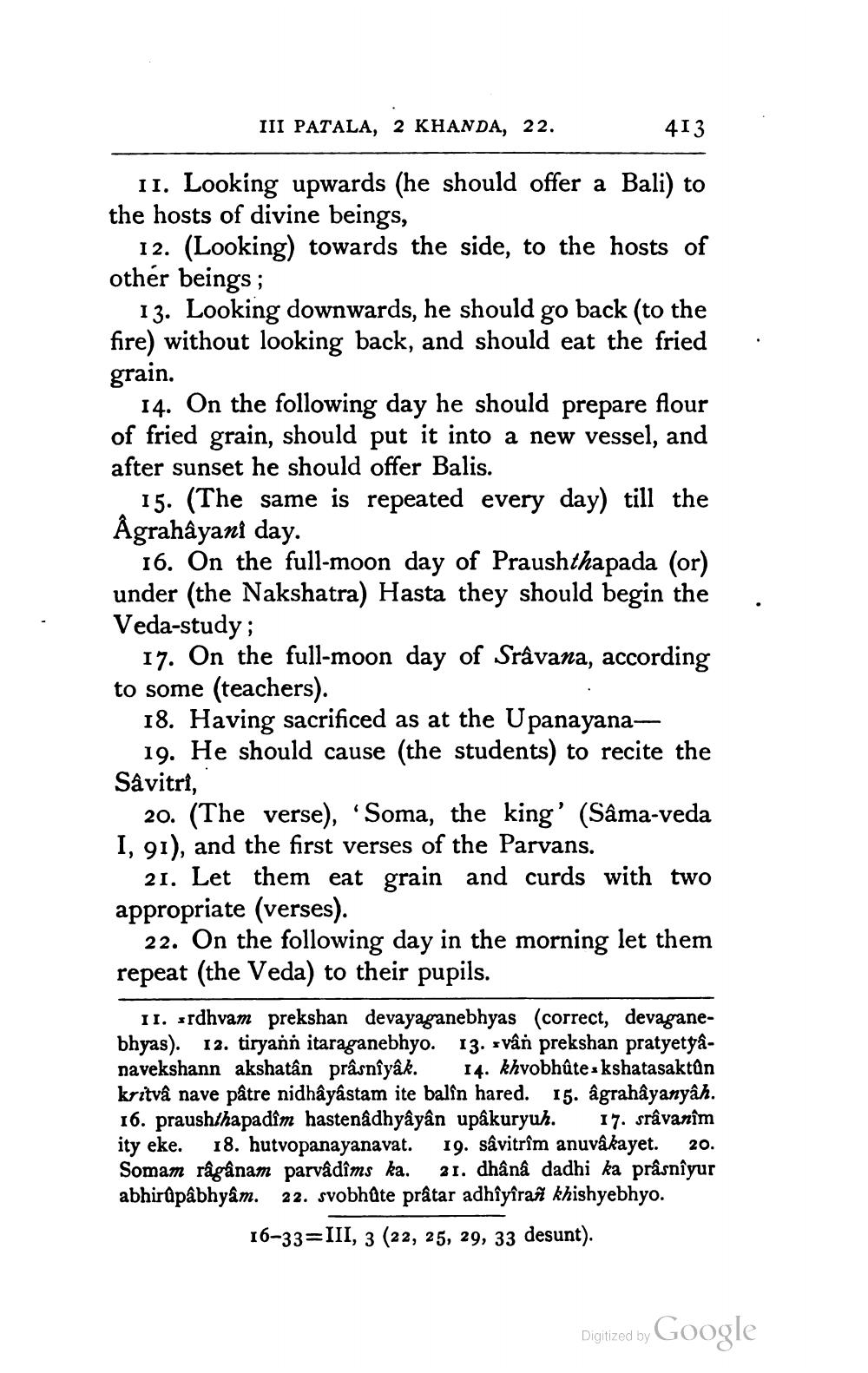________________
III PATALA, 2 KHANDA, 22.
413
11. Looking upwards (he should offer a Bali) to the hosts of divine beings,
12. (Looking) towards the side, to the hosts of other beings;
13. Looking downwards, he should go back (to the fire) without looking back, and should eat the fried grain.
14. On the following day he should prepare flour of fried grain, should put it into a new vessel, and after sunset he should offer Balis.
15. (The same is repeated every day) till the Agrahâyant day.
16. On the full-moon day of Praushthapada (or) under (the Nakshatra) Hasta they should begin the Veda-study;
17. On the full-moon day of Srâvana, according to some (teachers).
18. Having sacrificed as at the Upanayana
19. He should cause (the students) to recite the Sâvitri,
20. (The verse), 'Soma, the king' (Sâma-veda I, 91), and the first verses of the Parvans.
21. Let them eat grain and curds with two appropriate (verses).
22. On the following day in the morning let them repeat (the Veda) to their pupils.
II. Idhvam prekshan devayaganebhyas (correct, devaganebhyas). 12. tiryann itaraganebhyo. 13. vân prekshan pratyetyânavekshann akshatân prâsnîyâk. 14. khvobhûte kshatasaktûn kritvâ nave pâtre nidhâyâstam ite balîn hared. 15. âgrahâyanyâh. 16. praush/hapadîm hastenâdhyâyân upâkuryuh. 17. srâvanîm ity eke. 18. hutvopanayanavat. 19. sâvitrîm anuvâkayet. 20. Somam râgânam parvâdîms ka. 21. dhânâ dadhi ka prâsnîyur abhirûpâbhyâm. 22. svobhûte prâtar adhîyîran khishyebhyo.
16-33=III, 3 (22, 25, 29, 33 desunt).
Digitized by Google




